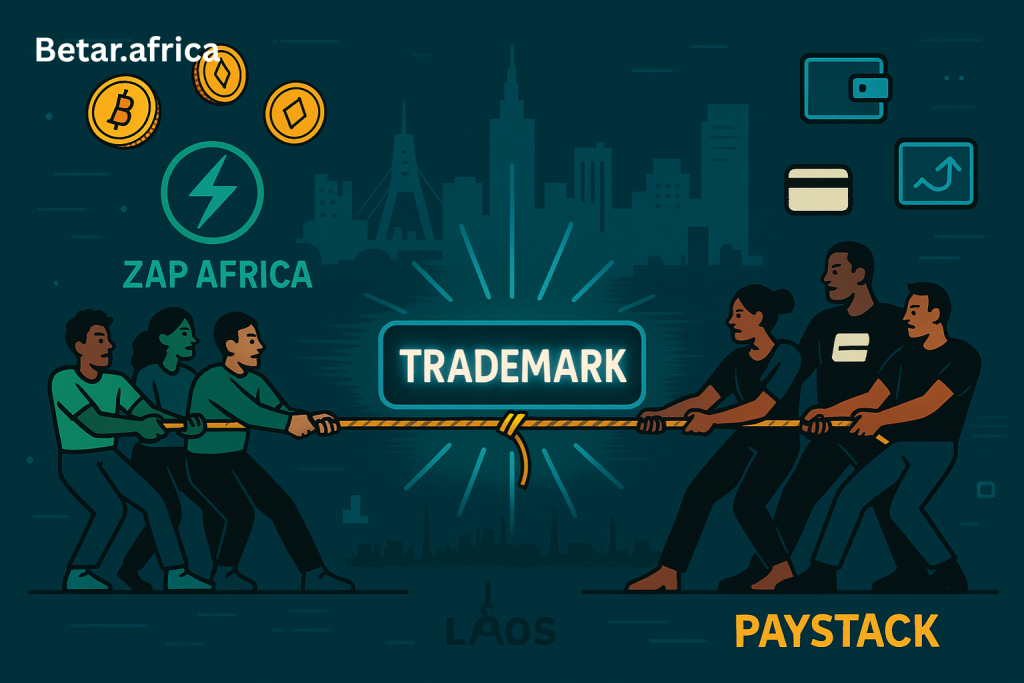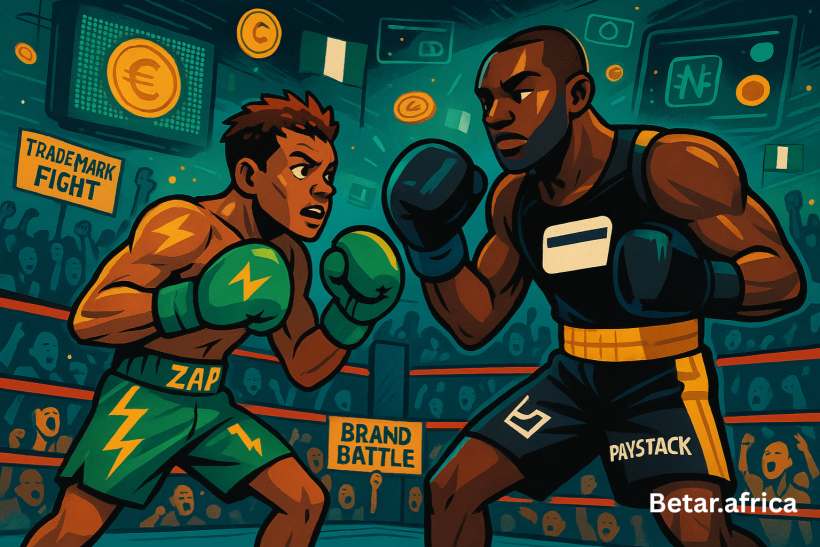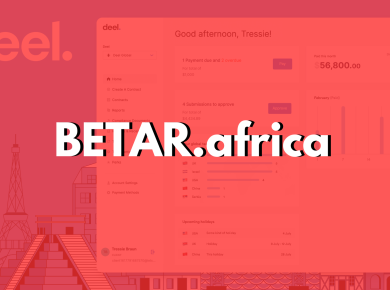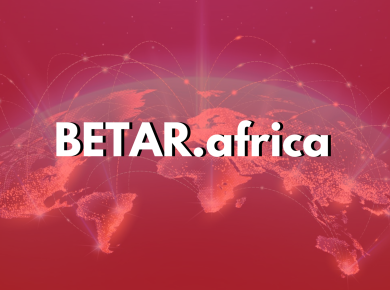Starting a business is tough enough—finding your niche, building a product, and winning customers all take grit and hustle. But what happens when you’ve got a killer idea, a solid brand, and then a bigger player swoops in with a name that sounds a little too familiar? That’s the drama unfolding between Zap Africa and Paystack, two Nigerian fintech startups caught in a trademark tussle that’s got lessons for every entrepreneur out there.
Here’s the gist: Paystack, a heavyweight in Africa’s payment processing scene, recently launched a new consumer app called Zap, designed to make bank transfers lightning-fast—think under 30 seconds. It’s a slick move for a company that’s been all about B2B for nine years, now stepping into the consumer ring. But then Zap Africa, a crypto exchange that’s been around for over three years, cried foul. They say “Zap” is their trademarked turf, and Paystack’s new product is muddying their brand waters.
Zap Africa’s CEO, Tobiloba Asu-Johnson, isn’t just annoyed—he’s worried. He argues that Paystack’s move could confuse customers, dilute their identity, and even scare off potential partners. “Trust is everything in finance and crypto,” he’s said, pointing out how some users thought Zap Africa was rebranding or teaming up with Paystack. Meanwhile, Paystack’s firing back, claiming they’ve done their homework, filing trademarks in multiple categories—including financial services, where Zap Africa allegedly missed the boat by registering in the wrong class (think advertising instead of finance).

This isn’t just a fintech soap opera; it’s a wake-up call for startups. Naming your business isn’t just about creativity—it’s about strategy and legal muscle. In Nigeria, registering a business name with the Corporate Affairs Commission (CAC) keeps others from using it, but it’s a trademark from the Trademarks Registry that gives you real ownership.
According to sources, Zap Africa registered its trademark under Class 35, which encompasses advertising, business management, and retail services. Paystack, however, has reportedly filed for trademarks across multiple categories, including Class 36—financial services, the core domain of fintech operations. Leveraging this broader filing, Paystack issued a cease-and-desist letter to Zap Africa, asserting its legal precedence. In response, Zap Africa countered with its own cease-and-desist, as revealed in documents obtained by Techpoint Africa. The notice states: “We write to bring to your immediate attention a matter regarding Paystack Payments Limited’s (Paystack) unauthorised use of our Client’s trademark, ‘ZAP’. This letter serves as formal notice to immediately cease and desist from further infringing our Client’s trademark rights.” This exchange underscores the high stakes of the dispute.
For startups, this case highlights the importance of intellectual property diligence. In Nigeria, registering a business name with the Corporate Affairs Commission (CAC) offers basic protection, but securing a trademark through the Trademarks Registry provides enforceable ownership. Zap Africa’s Class 35 registration may limit its claim in the financial services arena, while Paystack’s strategic filings in Class 36 could strengthen its position. The outcome—whether resolved through litigation or negotiation—will likely hinge on these technical distinctions.
Zap Africa might have a case if their trademark holds up, but if they slipped up on the class, Paystack could zap their claim right out of the water.
For entrepreneurs, this clash highlights a brutal truth: big players can flex their resources in ways small startups can’t. Paystack’s got the cash, the team, and the reach—Zap Africa’s fighting an uphill battle, even if they’re in the right. It’s not just about who’s got the better lawyers, though. Sources digging into the mess suggest Zap Africa’s trademark might be shaky, while Paystack’s filings look broad and deliberate. Still, Zap Africa’s not backing down—they’ve issued a cease-and-desist, and Paystack’s countered with one of their own. It’s a standoff that could end up in court or, if cooler heads prevail, at a negotiation table.
So, what’s the takeaway for your startup? First, nail down your brand protection early—trademarks aren’t optional when you’re building something worth stealing. Second, know your battlefield. Paystack’s Zap is slick, no doubt, but Zap Africa’s built a loyal crypto crowd. Different niches might mean less confusion than feared, but that’s for a judge to decide if it gets that far. Finally, don’t underestimate the power of hustle—even a giant like Paystack can’t ignore a scrappy startup with a solid fanbase and a loud voice (Zap Africa’s X post calling themselves the “one true ZAP” went viral with nearly a million views).
Starting up is a wild ride, and the Zap Africa vs. Paystack saga proves it’s not just about the product—it’s about the fight to own your space. Whether you’re a fintech dreamer or a bootstrapped underdog, this is your reminder: protect your name, know your rights, and be ready to scrap when the big dogs come barking.










